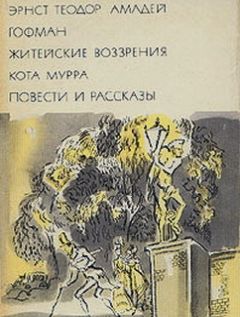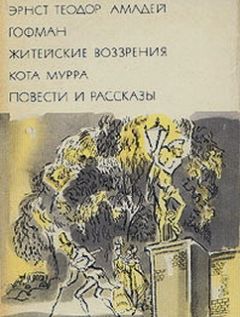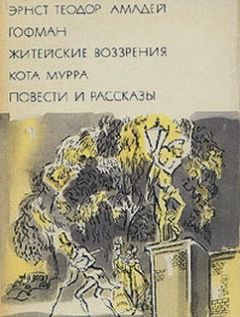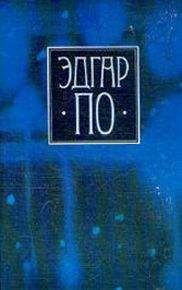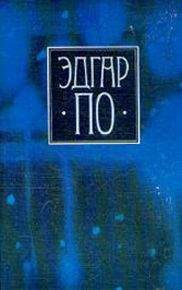Эдгар По - Золотой жук / The Gold-bug (сборник)

Все авторские права соблюдены. Напишите нам, если Вы не согласны.
Описание книги "Золотой жук / The Gold-bug (сборник)"
Описание и краткое содержание "Золотой жук / The Gold-bug (сборник)" читать бесплатно онлайн.
Эдгар Аллан По (1809–1849) – американский писатель-романтик, мастер новеллы, основоположник детективного рассказа и научно-фантастической повести. Мир произведений писателя причудливый и в то же время изысканный. Его законы подчиняются не общепринятой логике, а лишь игре авторского воображения. В книгу вошли рассказы «Что случилось с господином Вальдемаром», «Рукопись, найденная в бутылке», «Украденное письмо», «Колодец и маятник», «Золотой жук», в которых ярко проявился необычный писательский талант Э.А. По.
В пятницу на прошлой неделе мы решились наконец разбудить его – по крайней мере сделать попытку. Вот эта-то злополучная (быть может) попытка дала повод таким преувеличенным толкам, такому, смею выразиться, стихийному возбуждению толпы.
Для пробуждения господина Вальдемара я прибегнул к обычным пассам. Сначала они не возымели действия. Первым признаком оживления было опускание радужной оболочки, которое сопровождалось обильным выделением отвратительного зловонного гноя (из-под век).
Мне посоветовали испытать силу месмерического влияния над рукой пациента, как я делал раньше. Однако попытка не удалась. Тогда доктор Ф. попросил меня задать пациенту вопрос. Я послушался и спросил:
– Господин Вальдемар, как вы себя чувствуете? Не нужно ли вам чего?
На мгновение чахоточные пятна снова выступили на щеках, язык дрогнул и высунулся изо рта (хотя челюсти и губы оставались по-прежнему неподвижными), и тот же ужасный голос прохрипел:
– Ради Бога!.. скорее!.. скорее!.. усыпите меня… или… скорее!.. разбудите!.. скорее!.. говорю вам, что я умер!
Потрясенный, я не знал, что делать. В первую минуту хотел снова усыпить его, но, потерпев неудачу, принялся снова будить. Это удалось – по крайней мере, я сейчас увидел, что успех будет полный, и уверен, что все присутствующие с минуты на минуту ожидали пробуждения.
Но могла ли хоть одна живая душа предвидеть то, что случилось?
Пока я торопливо производил пассы, а восклицания «умер! умер!» буквально срывались с языка страдальца, все его тело на моих глазах в какую-то минуту съежилось, расползлось, буквально сгнило под моими руками. На постели перед глазами всех присутствующих оказалась отвратительная, полужидкая гнойная масса.
Ms. found in a bottle[3]
«Qui n’a plus qu’un moment à vivre N’a plus rien à dissimuler.»
Quinault, Atys.Of my country and of my family I have little to say. Ill usage and length of years have driven me from the one, and estranged me from the other. Hereditary wealth afforded me an education of no common order, and a contemplative turn of mind enabled me to methodise the stories which early study diligently garnered up. Beyond all things, the works of the German moralists gave me a great delight; not from my ill-advised admiration of their eloquent madness, but from the ease with which my habits of rigid thought enabled me to detect their falsities. I have often been reproached with the aridity of my genius; a deficiency of imagination has been imputed to me as a crime; and the Pyrrhonism of my opinions has at all times rendered me notorious. Indeed, a strong relish for physical philosophy has, I fear, tinctured my mind with a very common error of this age – I mean the habit of referring occurrences, even the least susceptible of such reference, to the principles of that science. Upon the whole, no person could be less liable than myself to be led away from the severe precincts of truth by the ignes fatui of superstition. I have thought proper to premise thus much, lest the incredible tale I have to tell should be considered rather the raving of a crude imagination, than the positive experience of a mind to which the reveries of fancy have been a dead letter and a nullity.
After many years spent in foreign travel, I sailed in the year 18 —, from the port of Batavia, in the rich and populous island of Java, on a voyage to the Archipelago of the Sunda Islands. I went as passenger – having no other inducement than a kind of nervous restlessness which haunted me as a fiend.
Our vessel was a beautiful ship of about four hundred tons, copper-fastened, and built at Bombay of Malabar teak. She was freighted with cotton-wool and oil, from the Lachadive Islands. We had also on board coir, jaggeree, ghee, cocoa-nuts, and a few cases of opium. The stowage was clumsily done, and the vessel consequently crank.
We got under way with a mere breath of wind, and for many days stood along the eastern coast of Java, without any other incident to beguile the monotony of our course than the occasional meeting with some of the small grabs of the Archipelago to which we were bound.
One evening, leaning over the taffrail, I observed a very singular isolated cloud, to the N.W. It was remarkable, as well for its colour, as from its being the first we had seen since our departure from Batavia. I watched it attentively until sunset, when it spread all at once to the eastward and westward, girting in the horizon with a narrow strip of vapour, and looking like a long line of low beach. My notice was soon afterwards attracted by the dusky-red appearance of the moon, and the peculiar character of the sea. The latter was undergoing a rapid change, and the water seemed more than usually transparent. Although I could distinctly see the bottom, yet, heaving the lead, I found the ship in fifteen fathoms. The air now became intolerably hot, and was loaded with spiral exhalations similar to those arising from heated iron. As night came on, every breath of wind died away, and a more entire calm it is impossible to conceive. The flame of a candle burned upon the poop without the least perceptible motion, and a long hair, held between the finger and thumb, hung without the possibility of detecting a vibration. However, as the captain said he could perceive no indication of danger, and as we were drifting in bodily to shore, he ordered the sails to be furled, and the anchor let go. No watch was set, and the crew, consisting principally of Malays, stretched themselves deliberately upon deck. I went below – not without a full presentiment of evil. Indeed, every appearance warranted me in apprehending a simoom. I told the captain my fears; but he paid no attention to what I said, and left me without deigning to give a reply. My uneasiness, however, prevented me from sleeping, and about midnight I went upon deck. As I placed my foot upon the upper step of the companion-ladder, I was startled by a loud, humming noise, like that occasioned by the rapid revolution of a mill-wheel, and before I could ascertain its meaning, I found the ship quivering to its centre. In the next instant, a wilderness of foam hurled us upon our beam-ends, and, rushing over us fore and aft, swept the entire decks from stem to stern.
The extreme fury of the blast proved, in a great measure, the salvation of the ship. Although completely water-logged, yet, as her masts had gone by the board, she rose, after a minute, heavily from the sea, and, staggering awhile beneath the immense pressure of the tempest, finally righted.
By what miracle I escaped destruction, it is impossible to say. Stunned by the shock of the water, I found myself, upon recovery, jammed in between the stern-post and rudder. With great difficulty I gained my feet, and looking dizzily around, was at first struck with the idea of our being among breakers; so terrific, beyond the wildest imagination, was the whirlpool of mountainous and foaming ocean within which we were engulfed. After a while, I heard the voice of an old Swede, who had shipped with us at the moment of leaving port. I hallooed to him with all my strength, and presently he came reeling aft. We soon discovered that we were the sole survivors of the accident. All on deck, with the exception of ourselves, had been swept overboard; the captain and mates must have perished as they slept, for the cabins were deluged with water. Without assistance, we could expect to do little for the security of the ship, and our exertions were at first paralysed by the momentary expectation of going down. Our cable had, of course, parted like pack-thread, at the first breath of the hurricane, or we should have been instantaneously overwhelmed. We scudded with frightful velocity before the sea, and the water made clear breaches over us. The framework of our stern was shattered excessively, and, in almost every respect, we had received considerable injury; but to our extreme joy we found the pumps unchoked, and that we had made no great shifting of our ballast. The main fury of the blast had already blown over, and we apprehended little danger from the violence of the wind; but we looked forward to its total cessation with dismay, well believing, that in our shattered condition, we should inevitably perish in the tremendous swell which would ensue. But this very just apprehension seemed by no means likely to be soon verified. For five entire days and nights – during which our only subsistence was a small quantity of jaggeree, procured with great difficulty from the forecastle – the hulk flew at a rate defying computation, before rapidly succeeding flaws of wind, which without equalling the first violence of the simoom, were still more terrific than any tempest I had before encountered. Our course for the first four days was, with trifling variations, S.E. and by S.; and we must have run down the coast of New Holland. On the fifth day the cold became extreme, although the wind had hauled round a point more to the northward. The sun arose with a sickly yellow lustre, and clambered a very few degrees above the horizon – emitting no decisive light. There were no clouds apparent, yet the wind was upon the increase, and blew with a fitful and unsteady fury. About noon, as nearly as we could guess, our attention was again arrested by the appearance of the sun. It gave out no light, properly so called, but a dull and sullen glow without reflection, as if all its rays were polarised. Just before sinking within the turgid sea, its central fires suddenly went out, as if hurriedly extinguished by some unaccountable power. It was a dim, silver-like rim, alone, as it rushed down the unfathomable ocean.
We waited in vain for the arrival of the sixth day – that day to me has not arrived – to the Swede, never did arrive. Thenceforward we were enshrouded in pitchy darkness, so that we could not have seen an object at twenty paces from the ship. Eternal night continued to envelop us, all unrelieved by the phosphoric sea-brilliancy to which we had been accustomed in the tropics. We observed, too, that, although the tempest continued to rage with unabated violence, there was no longer to be discovered the usual appearance of surf, or foam, which had hitherto attended us. All around were horror, and thick gloom, and a black sweltering desert of ebony. Superstitious terror crept by degrees into the spirit of the old Swede, and my own soul was wrapped up in silent wonder. We neglected all care of the ship, as worse than useless, and securing ourselves, as well as possible, to the stump of the mizzen-mast, looked out bitterly into the world of ocean. We had no means of calculating time, nor could we form any guess of our situation. We were, however, well aware of having made farther to the southward than any previous navigators, and felt great amazement at not meeting with the usual impediments of ice. In the meantime every moment threatened to be our last – every mountainous billow hurried to overwhelm us. The swell surpassed anything I had imagined possible, and that we were not instantly buried is a miracle. My companion spoke of the lightness of our cargo, and reminded me of the excellent qualities of our ship; but I could not help feeling the utter hopelessness of hope itself, and prepared myself gloomily for that death which I thought nothing could defer beyond an hour, as with every knot of way the ship made, the swelling of the black stupendous seas became more dismally appalling. At times we gasped for breath at an elevation beyond the albatross – at times became dizzy with the velocity of our descent into some watery hell, where the air grew stagnant, and no sound disturbed the slumbers of the kraken.
We were at the bottom of one of these abysses, when a quick scream from my companion broke fearfully upon the night. «See! see!» cried he, shrieking in my ears, «Almighty God! see! see!» As he spoke, I became aware of a dull, sullen glare of red light which streamed down the sides of the vast chasm where we lay, and threw a fitful brilliancy upon our deck. Casting my eyes upwards, I beheld a spectacle which froze the current of my blood. At a terrific height directly above us, and upon the very verge of the precipitous descent, hovered a gigantic ship, of perhaps four thousand tons. Although upreared upon the summit of a wave more than a hundred times her own altitude, her apparent size still exceeded that of any ship of the line or East Indiaman in existence. Her huge hull was of a deep dingy black, unrelieved by any of the customary carvings of a ship. A single row of brass cannon protruded from her open ports, and dashed from their polished surfaces the fires of innumerable battle-lanterns which swung to and fro about her rigging. But what mainly inspired us with horror and astonishment, was that she bore up under a press of sail in the very teeth of that supernatural sea, and of that ungovernable hurricane. When we first discovered her, her bows were alone to be seen, as she rose slowly from the dim and horrible gulf beyond her. For a moment of intense terror she paused upon the giddy pinnacle, as if in contemplation of her own sublimity, then trembled and tottered, and – came down.
At this instant, I know not what sudden self-possession came over my spirit. Staggering as far aft as I could, I awaited fearlessly the ruin that was to overwhelm. Our own vessel was at length ceasing from her struggles, and sinking with her head to the sea. The shock of the descending mass struck her, consequently, in that portion of her frame which was nearly under water, and the inevitable result was to hurl me, with irresistible violence, upon the rigging of the stranger.
As I fell, the ship hove in stays, and went about; and to the confusion ensuing I attributed my escape from the notice of the crew. With little difficulty I made my way, unperceived, to the main hatchway, which was partially open, and soon found an opportunity of secreting myself in the hold. Why I did so I can hardly tell. An indefinite sense of awe, which at first sight of the navigators of the ship had taken hold of my mind, was perhaps the principle of my concealment. I was unwilling to trust myself with a race of people who had offered to the cursory glance I had taken, so many points of vague novelty, doubt, and apprehension. I therefore thought proper to contrive a hiding-place in the hold. This I did by removing a small portion of the shifting-boards, in such a manner as to afford me a convenient retreat between the huge timbers of the ship.
Подписывайтесь на наши страницы в социальных сетях.
Будьте в курсе последних книжных новинок, комментируйте, обсуждайте. Мы ждём Вас!
Похожие книги на "Золотой жук / The Gold-bug (сборник)"
Книги похожие на "Золотой жук / The Gold-bug (сборник)" читать онлайн или скачать бесплатно полные версии.
Мы рекомендуем Вам зарегистрироваться либо войти на сайт под своим именем.
Отзывы о "Эдгар По - Золотой жук / The Gold-bug (сборник)"
Отзывы читателей о книге "Золотой жук / The Gold-bug (сборник)", комментарии и мнения людей о произведении.







